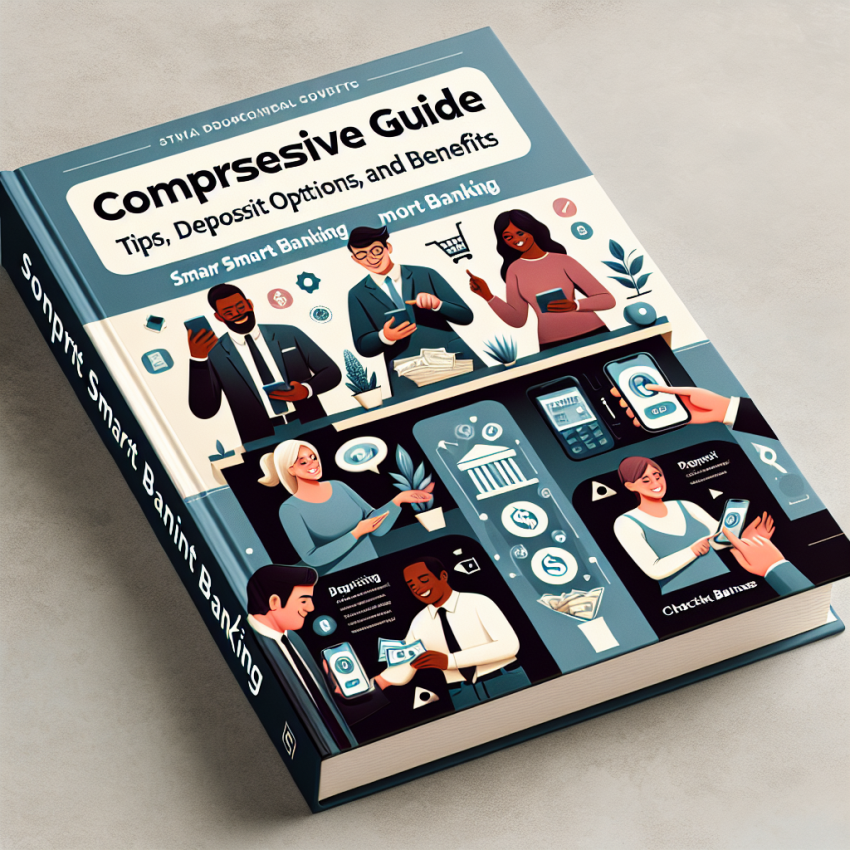Unlocking Smart Banking: Essential Tips, Deposit Options, and Their Benefits
In today’s fast-paced financial landscape, understanding the nuances of banking is crucial for both individuals and businesses. Whether you are opening your first account or looking to optimize your savings, knowing the right tips, exploring various deposit options, and leveraging their benefits can make all the difference. This guide provides in-depth insights and actionable advice to help you make informed decisions about your finances.
Top Tips for Effective Banking
- Automate Your Savings: Set up automatic transfers from your checking to your savings account to ensure consistent growth.
- Compare Interest Rates: Regularly compare interest rates on various deposit accounts, such as savings and certificates of deposit (CDs), to maximize your returns.
- Monitor Account Activity: Use online banking tools or mobile apps to track transactions and detect any unauthorized activities immediately.
- Understand Fees: Be aware of any maintenance, withdrawal, or transfer fees associated with your accounts to avoid unnecessary charges.
- Utilize Online Banking Features: Take advantage of features like bill pay, e-statements, and alerts to streamline your financial management.
Exploring Deposit Options: Find What Suits Your Needs
When choosing where to deposit your money, it’s important to understand the variety of options available. Each deposit method comes with unique features and benefits, catering to different financial goals and preferences.
Savings Accounts
Ideal for building an emergency fund, savings accounts offer liquidity and a modest interest rate. They are insured up to a certain limit and are perfect for short-term savings goals.
Certificates of Deposit (CDs)
CDs provide higher interest rates than savings accounts in exchange for locking your funds for a specified period. They are suitable for those who can commit to not accessing their money for a set term.
Money Market Accounts
These accounts combine features of savings and checking accounts, offering competitive rates and easy access to funds, often with check-writing privileges.
Recurring Deposits
A recurring deposit allows you to deposit a fixed amount regularly, helping develop disciplined saving habits while earning interest.
The Benefits of Choosing the Right Deposit Options
Selecting the most suitable deposit option can lead to numerous advantages, including financial security, higher returns, and greater flexibility. Here are some key benefits:
- Safety and Security: Most deposit accounts are insured by regulatory bodies, ensuring your funds are protected up to a certain limit.
- Interest Earnings: Your money works for you, growing over time through compound interest, especially in high-yield accounts and CDs.
- Easy Access: With online and mobile banking, managing your deposits and withdrawals has never been more convenient.
- Flexible Terms: Choose between short-term liquidity or long-term growth, depending on your financial objectives.
- Budget Management: Using multiple deposit accounts can help organize finances, separate savings goals, and track progress effectively.
Key LSI Keywords Related to Tips, Deposit Options, and Benefits
To further your understanding, here are some related terms that frequently appear in banking discussions:
- Account management tips
- Types of bank deposits
- High-yield savings benefits
- Deposit insurance coverage
- Banking flexibility
- Online deposit options
- Interest rate comparison
- Financial planning strategies
- Fee-free banking
- Safe deposit practices
Visual Guide: Making the Most of Your Deposit Choices
The following infographic illustrates the process of choosing the right deposit account, evaluating the benefits, and applying practical tips for financial success.
Conclusion: Empower Your Finances with Smart Choices
By implementing expert tips, selecting the right deposit options, and understanding their associated benefits, you can create a strong foundation for your financial future. Remember to stay informed, review your banking products periodically, and adapt your strategy as your needs change. Smart banking is all about making thoughtful, informed decisions that align with your unique goals.


